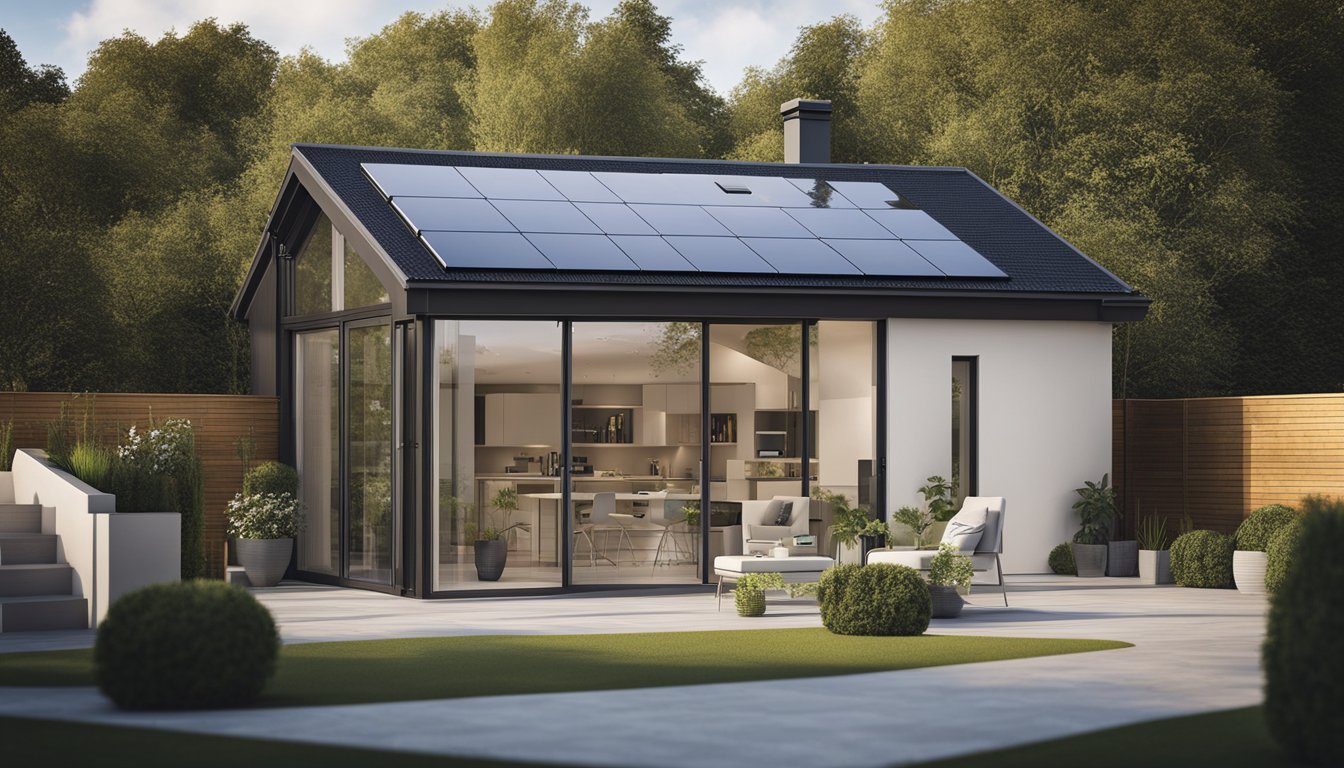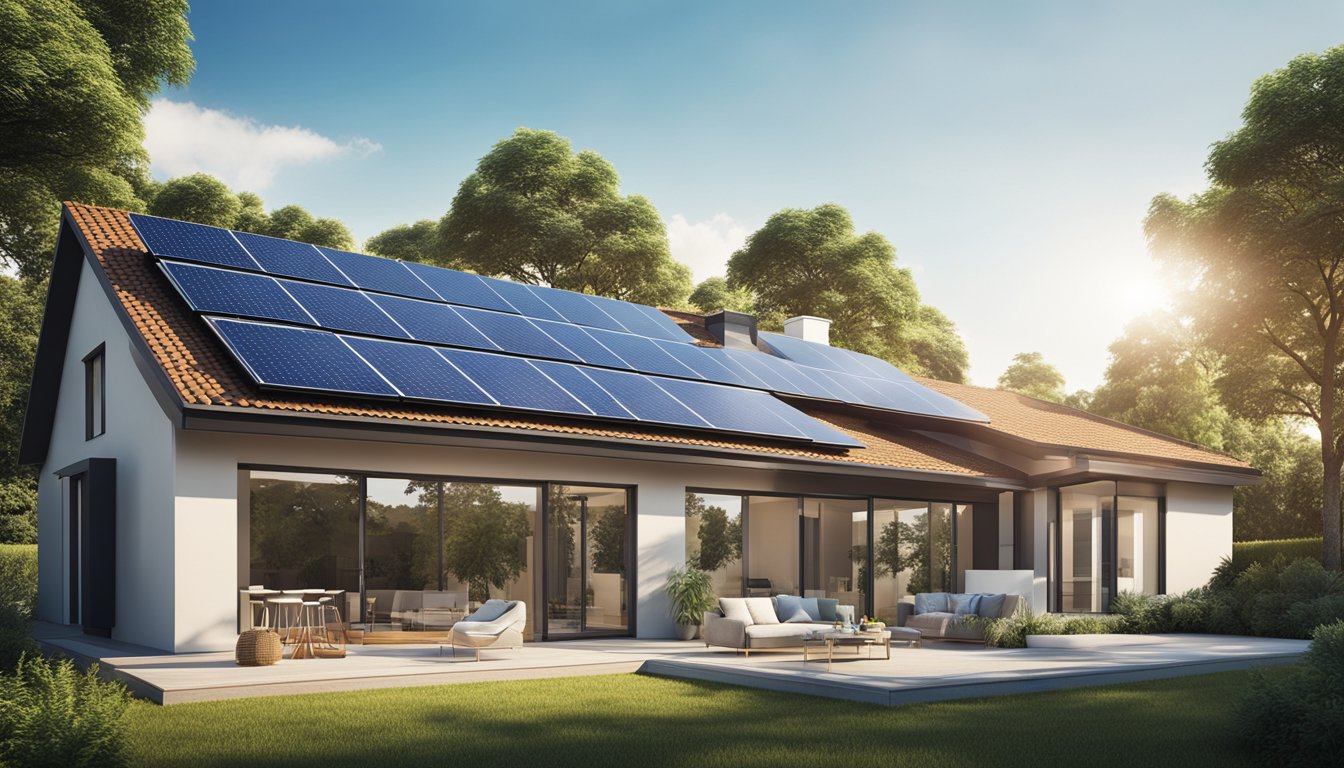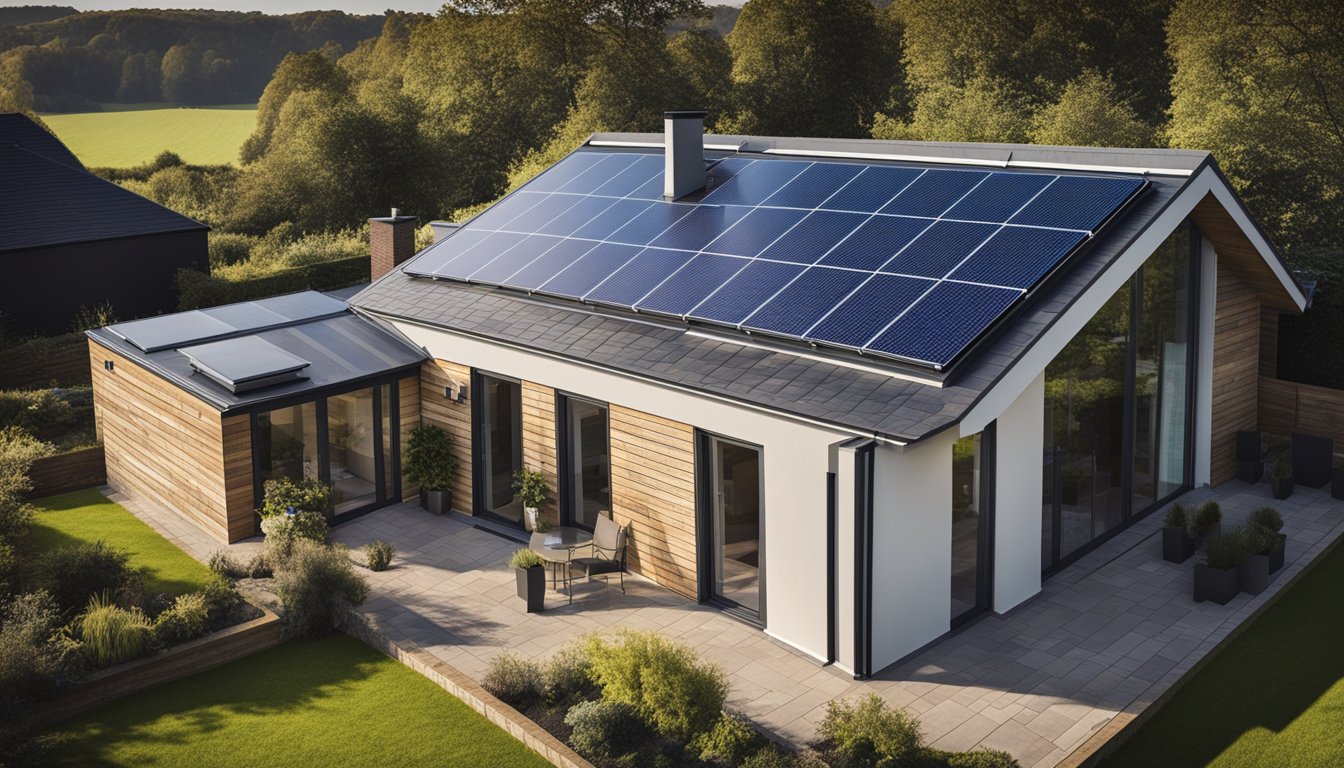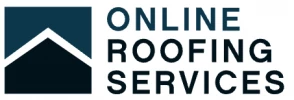Late updated: 19 Feb 2025 10:02
Written by: Oliver Bennett
Emerging Smart Roof Innovations For UK Homeowners: Future-Proof Your Property
Smart roofing technology is rapidly transforming the landscape for UK homeowners. As we explore the latest innovations, one particular advancement stands out—smart roofs can significantly enhance energy efficiency and offer improved cost savings. This leap in technology aligns perfectly with the growing demand for sustainable living solutions.

Our homes are not just places we live but investments we protect and nurture. The roofing sector has embraced modern materials and structural innovations that promise increased durability and aesthetics. Integrating intelligent technologies in roofing systems means homeowners can monitor conditions, manage energy consumption, and even contribute to a greener environment.
As more people become aware of these innovative advancements, smart roofing is poised to become an indispensable part of modern homes. Our aim is to guide you through this evolving landscape, providing insights and answering common queries to assist you in making informed decisions for your home.
Key Takeaways
- Smart roofing enhances energy efficiency for UK homes.
- Modern materials and innovations improve durability and aesthetics.
- Homeowners can benefit from increased cost savings and sustainability.
Advancements in Smart Roofing for Enhanced Energy Efficiency

In recent years, the integration of smart roofing innovations has become indispensable for those seeking to improve energy efficiency and reduce maintenance costs. By leveraging technologies such as solar panels, real-time monitoring systems, and eco-friendly materials, we are witnessing a transformative shift in roofing solutions.
Solar Panel Integration and Solar Tiles
Solar panels and solar tiles are at the forefront of renewable energy solutions for homes. These photovoltaic systems convert sunlight into electricity, reducing reliance on the grid. Solar tiles blend seamlessly with traditional roofing materials, providing an aesthetic advantage over traditional panels. This integration allows homeowners to utilise their roof space for energy savings while maintaining appealing architecture.
Installation costs can be significant, yet the long-term energy savings often offset these initial expenditures. We must also consider maintenance, which primarily involves ensuring the panels are clean and free of debris for optimal performance. Investing in solar roofing solutions not only enhances energy efficiency but also contributes to a decrease in our carbon footprint.
Smart Roof Technology and Real-Time Monitoring Systems
Smart roof technology brings us advanced real-time monitoring systems capable of detecting issues before they escalate. These systems integrate sensors to gather data on various aspects, such as temperature, humidity, and structural integrity. By gaining insights into the thermal performance of our roofs, we can proactively manage maintenance and reduce costs.
With real-time data, smart roofs can alert us to potential problems like leaks or energy inefficiencies, promoting immediate action. Additionally, this technology contributes significantly to sustainability by optimising energy usage. Embracing smart roof technology not only enhances efficiency but also ensures the prolonged health of our roofing investments.
Green Roofing and Eco-Friendly Materials
Green roofs, incorporating eco-friendly materials, pave the way for sustainability and improved environmental impact. By using vegetation and soil layers, green roofs provide excellent thermal performance, reducing the energy needed to heat or cool a building. These roofs also absorb rainwater, decrease the urban heat island effect, and improve biodiversity by creating natural habitats.
The installation of green roofs can initially be costly; however, the benefits in reducing maintenance costs and improving air quality are substantial. As an added advantage, such systems often lead to tax incentives. Opting for green roofs aligns with a future-facing approach to sustainability while delivering aesthetic and environmental benefits.
Reflective Coatings and Cool Roofing Systems
Reflective coatings are an essential component of cool roofing systems, designed to combat the urban heat island effect. By reflecting more sunlight and absorbing less heat, cool roofs significantly lower building temperatures. This reduction in thermal load leads to decreased energy consumption for cooling, yielding substantial energy savings.
These coatings, applied onto various roof types, are available in a range of colours, ensuring flexibility with architectural styles. The durability of reflective coatings enhances the lifespan of roofs by mitigating heat-induced wear and tear. Implementing cool roofing solutions helps us foster a more sustainable urban environment while reaping the benefits of improved energy efficiency.
Modern Roofing Materials and Structural Innovations
In the evolving arena of roofing, modern materials and techniques are revolutionising our approach to durability, sustainability, and efficiency. By embracing smart roofing systems and environmentally friendly methods, we are enhancing both the lifespan and functionality of roofs in innovative ways.
Advanced Roofing Systems and Materials
Recent advancements in roofing materials include options like impact-resistant roofing and synthetic roofing materials. These modern choices provide homeowners with durable solutions that extend the roof's lifespan. Metal roofing continues to shine as a resilient choice, combining durability and aesthetic appeal.
Smart roofing solutions integrate technology with traditional materials. For instance, the inclusion of smart roof ventilation systems helps in managing indoor temperatures more effectively. Asphalt shingles with advanced formulations offer increased resilience against weather extremes. These modern systems not only protect homes but also contribute to energy efficiency and cost savings.
Environmental Considerations and Sustainability
Eco-friendly roofing materials are gaining momentum due to heightened awareness about climate change. Green roofing systems, which incorporate living plants, offer excellent insulation and contribute to improved air quality. Sustainable roofing is a priority as more eco-conscious buyers seek options like solar technology and renewable energy sources.
We are seeing a rise in demand for roofing innovation that prioritises environmental sustainability. From recycled materials to energy-efficient designs, roofing systems are evolving to minimise ecological impact. Solar-integrated roofs, featuring solar tiles, produce renewable energy while seamlessly blending with modern architectural styles, meeting both functional and aesthetic demands.
Innovative Installation Methods and Waste Reduction
The construction industry is increasingly focused on reducing installation time and minimising waste. Panelised roofing systems are emerging as an efficient solution, offering quick assembly on-site and reducing construction waste significantly. Techniques such as 3D printing in roofing are also gaining interest, allowing for precise production with minimal material waste.
Innovative installation methods allow us to achieve quicker, cost-effective results without compromising on quality. This shift towards efficient practices aligns with broader environmental considerations, echoing the industry's commitment to sustainable development.
Smart Sensors and Proactive Maintenance Strategies
The introduction of smart sensors in roofing systems is a game-changer. These sensors monitor moisture levels and structural integrity, providing real-time data that supports proactive maintenance. By identifying issues early, we can prevent costly damage and extend a roof's lifespan significantly.
Proactive maintenance strategies, facilitated by technology, help us address problems before they escalate. Smart sensors enhance the accuracy of roof assessments, leading to better preventative maintenance practices. This fusion of technology and roofing ensures that we maintain high standards of structural reliability and safety for homeowners.
Frequently Asked Questions

For UK homeowners, the latest innovations in smart roofing encompass recent technological advancements, cost-effectiveness, prefabricated solutions, and solar integration options. These developments promise enhanced energy efficiency and transformative changes in roofing solutions, catering to sustainability and modern living standards.
What are the most recent advancements in smart roofing technologies for UK properties?
Recent advancements in smart roofing technologies include real-time monitoring systems, integration of solar tiles, and enhancements in energy efficiency. These innovations not only provide protection but also contribute to sustainable energy use, making them attractive options for homeowners seeking modern and efficient solutions.
How cost-effective are the new smart roofing systems for homeowners in the UK?
The initial investment in smart roofing systems can be higher than traditional options. Yet, many homeowners find them cost-effective over time due to reduced energy bills and lower maintenance costs. These systems often come with features that significantly enhance energy efficiency, leading to long-term savings.
What are the benefits of prefabricated roofing solutions over traditional roofing methods?
Prefabricated roofing solutions offer numerous benefits over traditional methods, including quicker installation times and reduced labour costs. They are manufactured under controlled conditions, ensuring high quality and durability. Moreover, prefabrication allows for customisation, enabling homeowners to choose designs and features that fit their specific needs.
How do panelised roofing systems enhance building efficiency for UK homes?
Panelised roofing systems contribute to building efficiency by providing excellent thermal insulation and reducing construction time. These systems are designed for optimal performance in energy conservation, assisting in regulating indoor temperatures. Their precise fit and durable materials make them a practical choice for enhancing overall building efficiency.
What solar integration options are available with smart roofing innovations?
Smart roofing innovations offer a variety of solar integration options, such as solar tiles and photovoltaic panels. These can be seamlessly integrated into the roof, combining aesthetics with functionality. The renewable energy generated helps in reducing reliance on traditional power sources, contributing to lower energy costs.
How is the roofing industry expected to evolve in the near future for UK homeowners?
The roofing industry is expected to focus progressively on sustainability and smart technology. Future developments may include further advances in materials that improve efficiency and eco-friendliness. We anticipate growing adoption of technologies that enable roofs to interact intelligently with other smart home systems, enhancing overall energy management.
